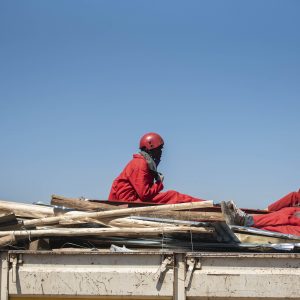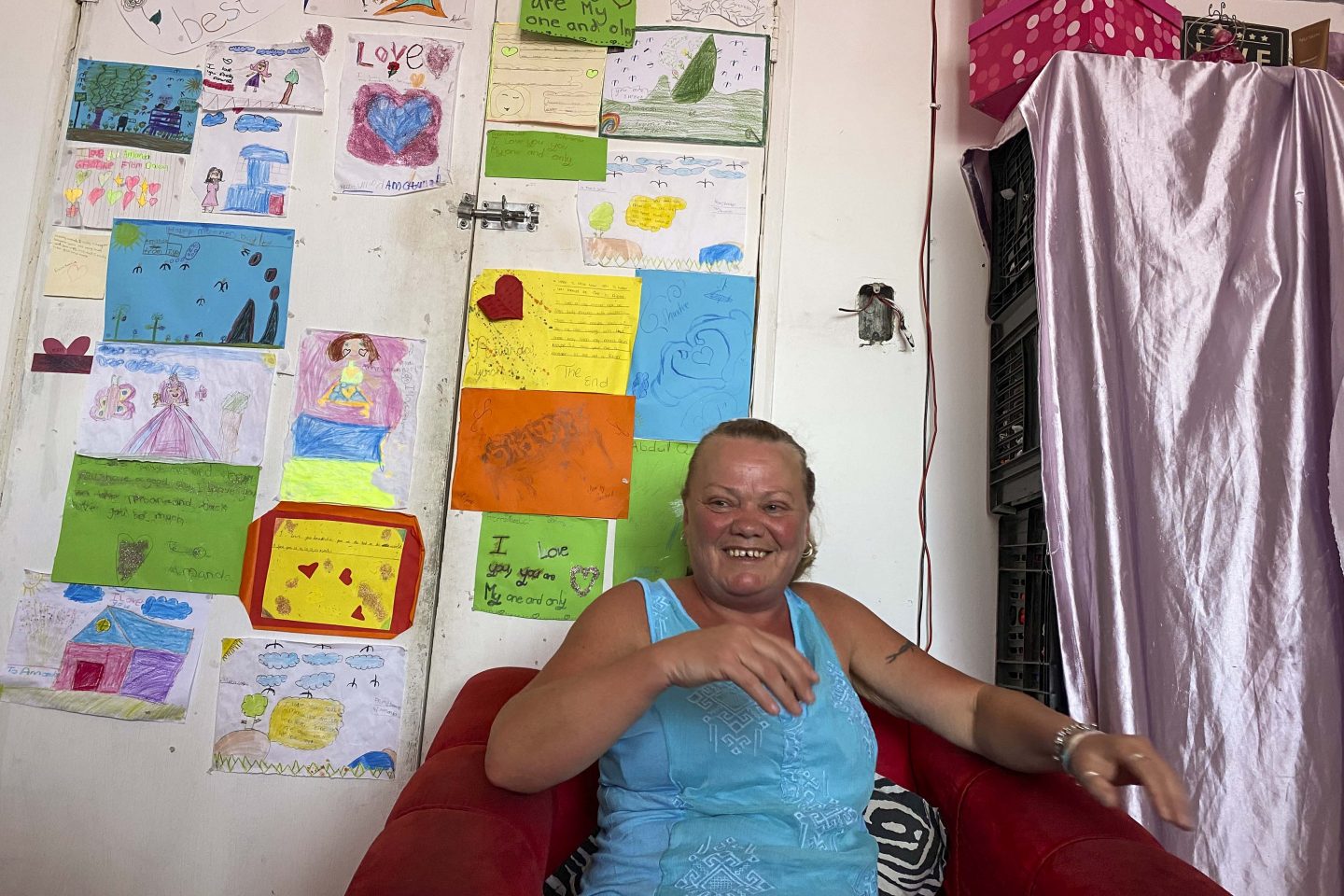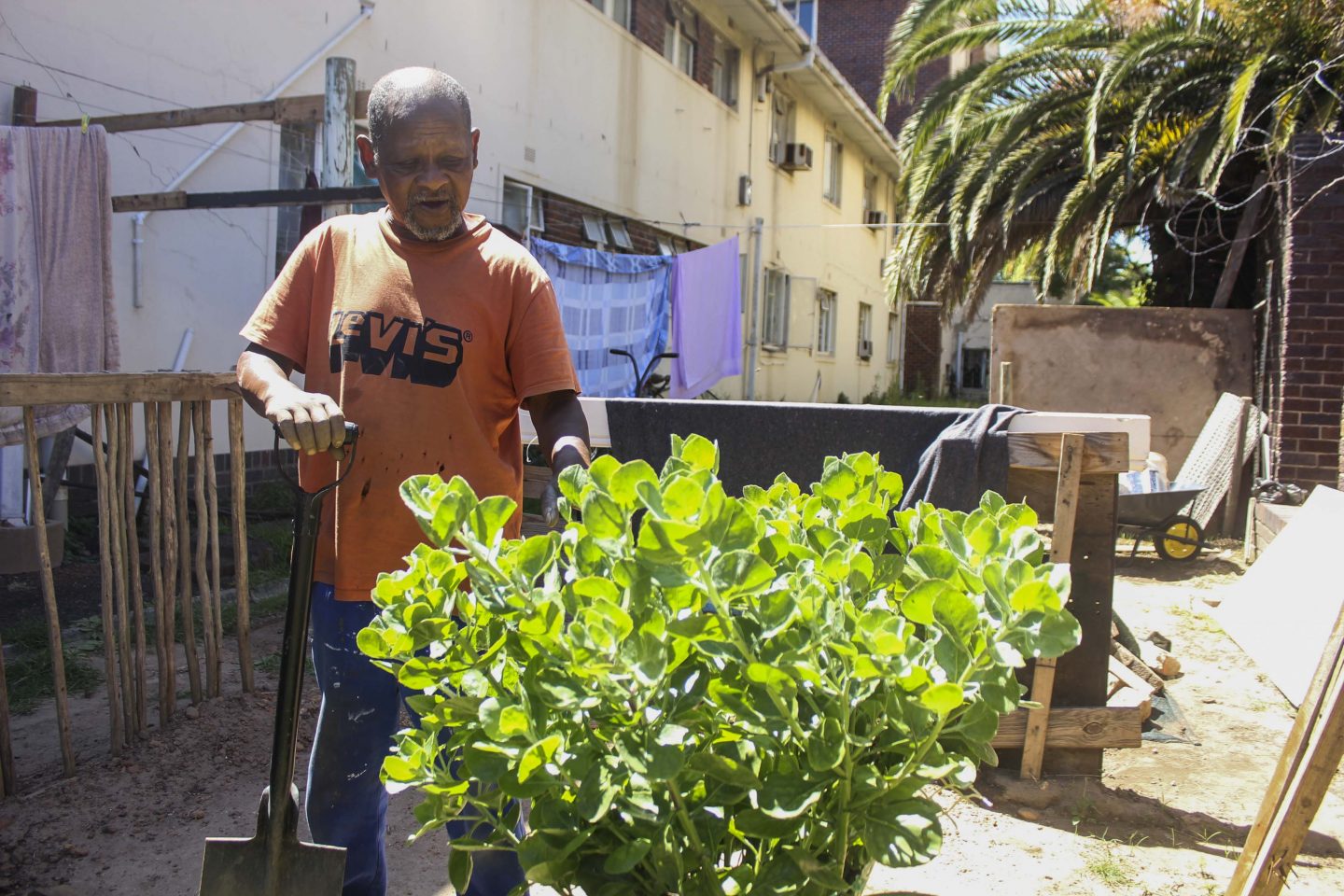Cissie Gool dwellers want talks, not evictions
Residents have turned the former Woodstock Hospital into a home and want the City of Cape Town to engage directly with them to come up with a solution, rather than evict them through the courts.
Author:
16 March 2021

It has been almost four years since residents occupied the Woodstock Hospital in Cape Town, now known as Cissie Gool House. The only living things there then were birds and rats. The people living there have turned the building into not only a home but also a community, and now the threat of eviction hangs over their heads.
They have also fixed the stove and oven, created a vegetable garden and set up an after-school facility where designated youth monitors look after children.
Youth monitor Nasreen Moolajee, affectionately known as Granny, says she is worried about what would happen to the children should the City of Cape Town follow through with its planned eviction. “They must reconsider because we can’t break this up. I don’t want to talk about it because I become emotional. At the moment it is very sad. To break up this for what? There is already a community.”
Moolajee runs an after-school programme for children living at Cissie Gool House. She takes pride in what she does. She beams when she talks about a child whom she helped tutor, who recently left for university in the Free State. “If I care for a child, they automatically become my kid. I’ve got a lot of kids that come in for after-school. So far, while I’ve been here, it is going okay. This is a passion that I have. I help with all the subjects from grade 8 to grade 12. When it was their final exams, I stopped everything and just concentrated with the matric exams.”

She says she is extremely concerned about the pending court case and threat of eviction, especially how it will affect the children. “I am not feeling good about it. The thing is, the children trust me. What am I going to tell them? I’m worried about each and every one in this occupation. It is not right. What about the little ones that can’t speak out? What am I going to tell them if I’m not there anymore? I’m feeling very heartsore for what we have to go through. Sometimes I think it is not necessary. I think it’s just cruel.”
“There are so many plots that they could build on. Why not build on there first and see if the people will move? Where must they go now? They want to move us far out to where the crime is. Is this really what the City wants for our children? Here at the moment we are all safe, instead of sending us into places we will die. It’s not humane, it is upsetting.”
No confidence in housing list
Cissie Gool House was occupied in 2017 along with Ahmed Kathrada House, formerly the Helen Bowden Nurses Home, in protest against the lack of affordable and social housing in Cape Town. The community living there moved in shortly after the provincial government sold the Tafelberg property in Sea Point to a private buyer. Non-profit organisation Ndifuna Ukwazi and the Reclaim the City (RTC) movement had said the government shouldn’t be selling land but using it for public good, especially in the midst of a housing crisis. The Tafelberg matter is still before the courts.
Related article:
The residents of Cissie Gool House mostly feel let down by the government. Many who live there have been on the housing list for decades and have given up any hope of the government solving the housing crisis.
Resident Nazeem Rakiep works in the communal kitchen, doing maintenance and helping cook every Friday. He has been living there for more than two years. “I was living in my car. I used to live in Salt River, all my life. About 14 years ago, I could afford to buy a place.”
Rakiep went to the council to put his name on the housing list when he got married in 1982, but later he was able to afford his own house. “Then things happened and I lost the house. I went back to them to find out where [is] this house that I’ve been waiting for. They told me that I’m off the list because of the house I bought.
“I had to apply again about 10 years ago and still nothing to this day. There’s people living here that have been on the waiting list for more than 20 years. You hear and see people getting places and it’s youngsters as well. Now how does this work?”

He says the City’s plans to go through with evictions upset him, and that residents would rather engage with the City than have the matter heard in court. “It makes me angry. Even during Covid, we ran a soup kitchen. Not once did they come. They didn’t come here because they have branded us as criminals. How can you brand someone as a criminal if you don’t know and didn’t see for yourself?
“We’ve been inviting them several times to come and sit down with us. I would love that, because then they could see what was really happening here.”
‘Why the U-turn?’
The City of Cape Town released a media statement in February that said a court-ordered survey of the residents of Cissie Gool House was needed to “determine the number of illegal occupants at Woodstock Hospital, their identities, monthly income and eligibility for state-subsidised housing, and willingness to vacate the property so that social housing plans are not further delayed.
“Development of social housing is not possible unless all the illegal occupants vacate the site. If needs be, the City will pursue eviction proceedings subject to lockdown regulations.”
Mayoral committee member for human settlements Malusi Booi claimed that: “Several other well-located City projects in Woodstock are set for major milestones this year, with a projected total of around 620 social housing units. Pine Road is due to break ground, Dillon Lane is at the development application stage and Salt River Market is now just months away from handover to a social housing developer.”
Related article:
In a counter statement, Reclaim the City said: “We are deeply disappointed that the City abandoned the dialogue process we had started together in 2019 and now moves to evict us without meaningfully engaging us as it is constitutionally required to do. Why the U-turn?
“In recent months, the City has tried to portray us as criminals and vandals, but … the City’s own departments recognise that the families living in Cissie Gool House have kept the buildings clean, safe and well-maintained … [and] acknowledge that Cissie Gool House is ‘well-run’ by the families that live here.
“The Cissie Gool House occupation has shown us that we can have a seat at the table, but we must remain strong and make sure that our seat isn’t taken away from us. Now that the City is building social housing, we do not want to be left out in the cold again. To the City we say: ‘Nothing about us, without us!’ RTC has invited (and again invites) the City into our spaces to engage on the serious question of what should happen to the families living in the occupations and ask to be part of a solution to protect housing rights and allow them to remain in place.”

‘We are families here’
Under threat of mass eviction during a pandemic, the occupiers at Cissie Gool House face an uncertain future.
Youth monitor Amanda Gericke runs a makeshift library and meeting room, where children come for after-school activities. They also screen movies on Saturdays for the youth and host other activities such as drawing and dance classes.
Gericke worries about being evicted. “I’ve got absolutely nowhere to go. There’s no family I can go to, I will end up in the street. I am looking for a job around here. I can’t afford to be thrown far out there. I am praying that they will get us a place where they will build us affordable housing, anything in the inner city. So the people can still go to work and the children can still go to school and be close to transport.
Related article:
“My hope for this occupation is that they [the City] come and speak to us and see that we are families here. Come and look how we are living and see what we are doing here with the children, the garden, and see how we have bettered this place. Before we came here, there were birds and rats living in here. It was filthy. We cleaned up this whole place. We fixed up where we could fix up. My hope is that they will come and talk to us,” she says.
The matter of the court-ordered survey, with a view to eventually going ahead with the eviction of the occupiers of Cissie Gool House, is scheduled to be heard in the Cape Town high court in April.





